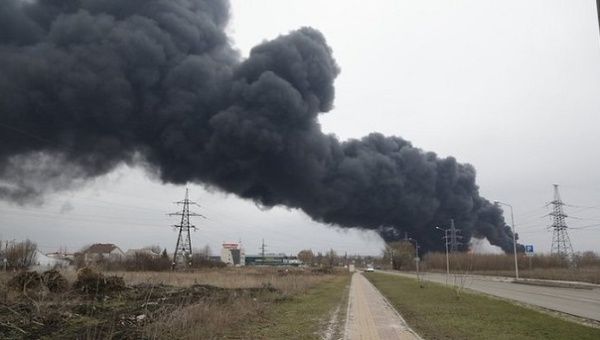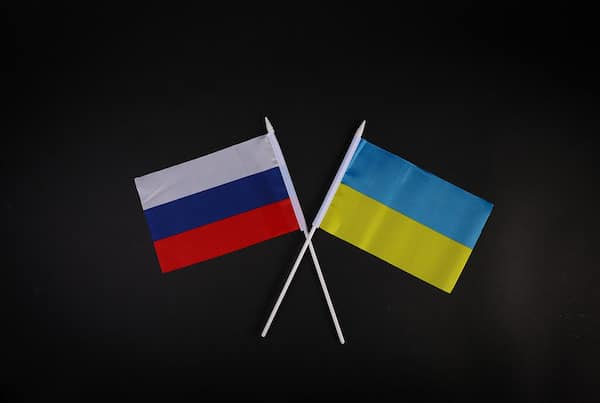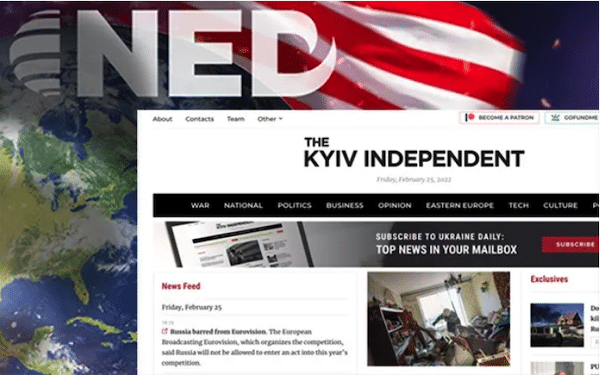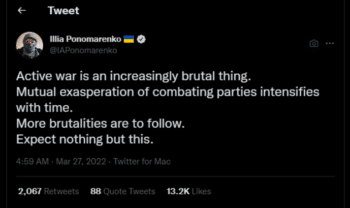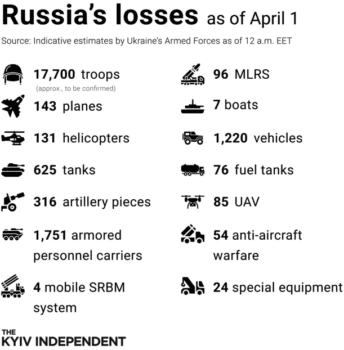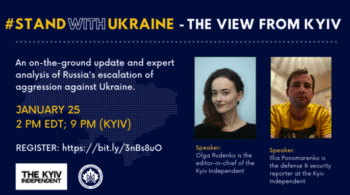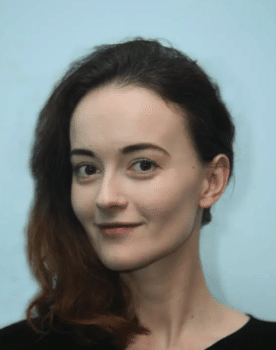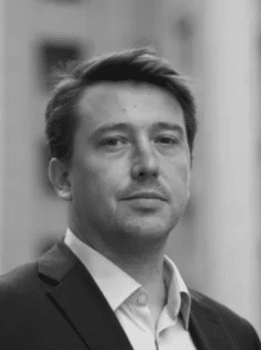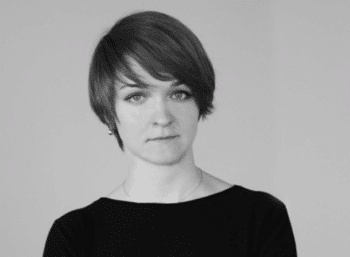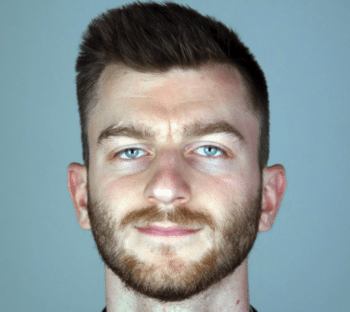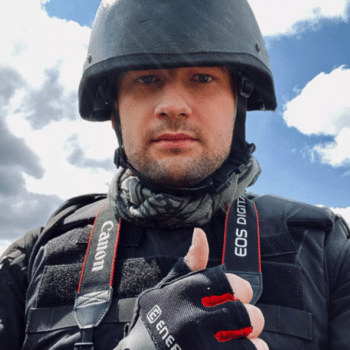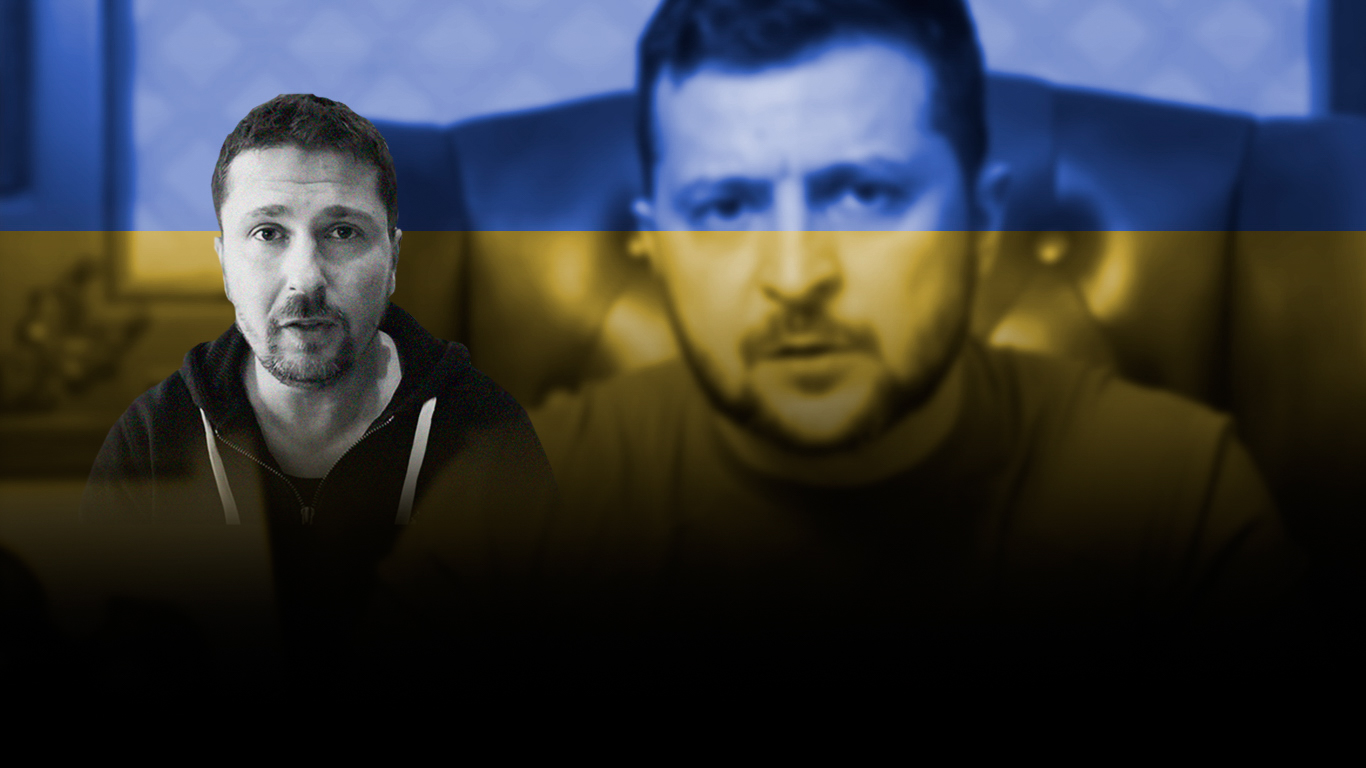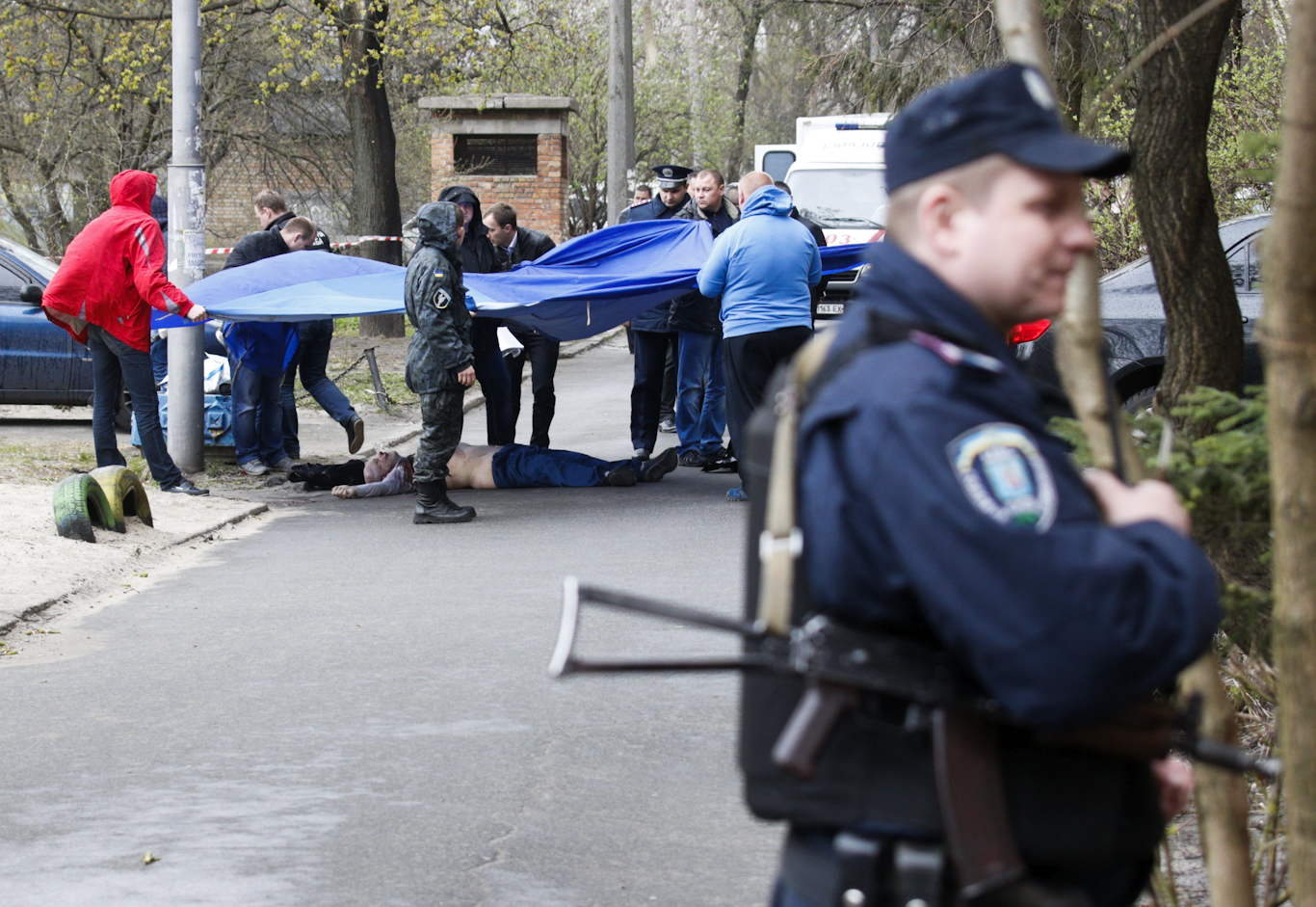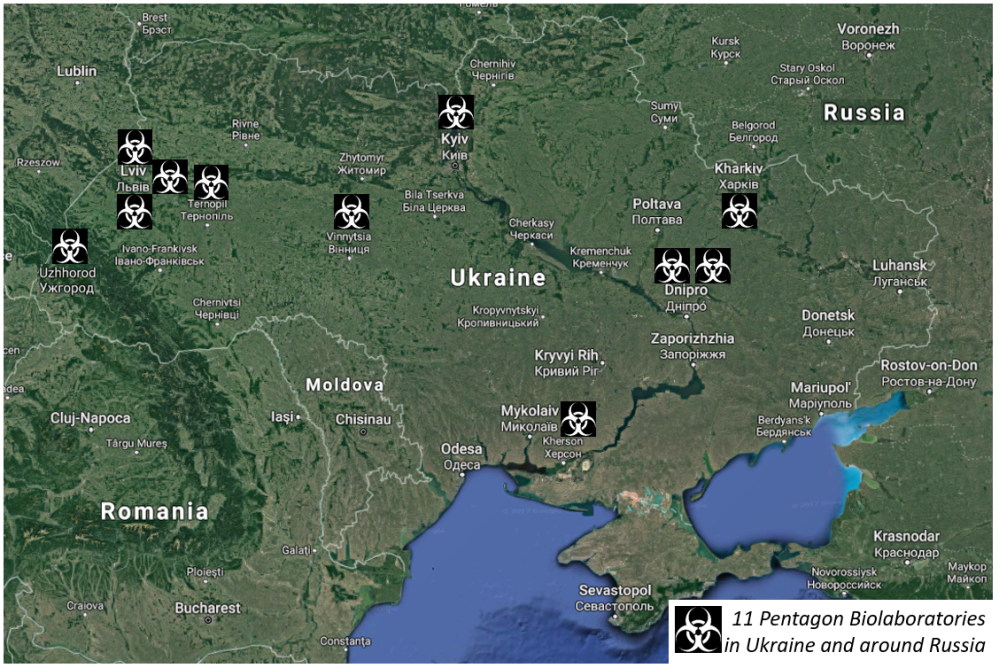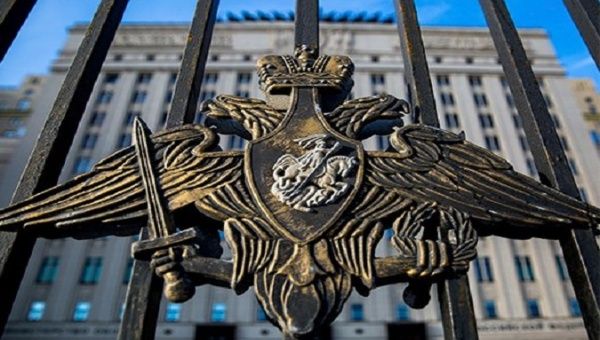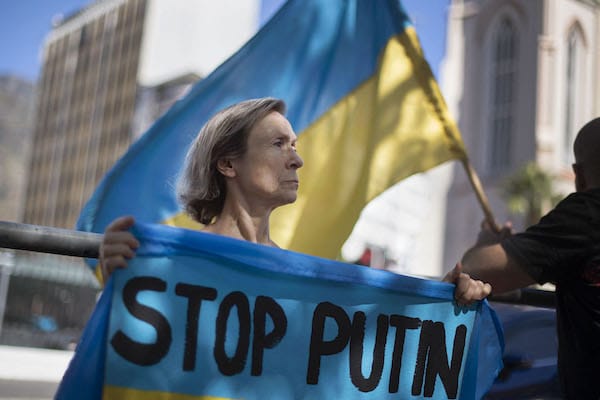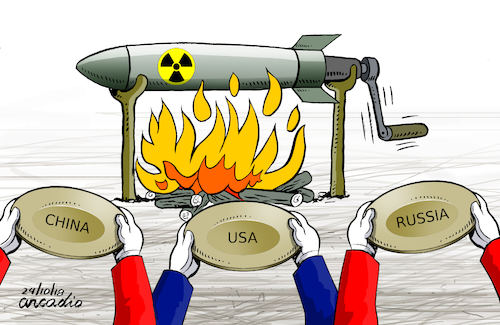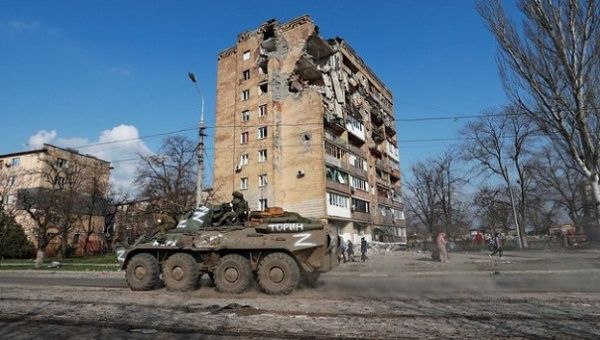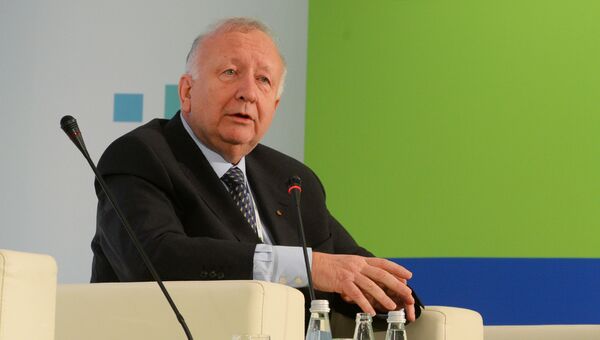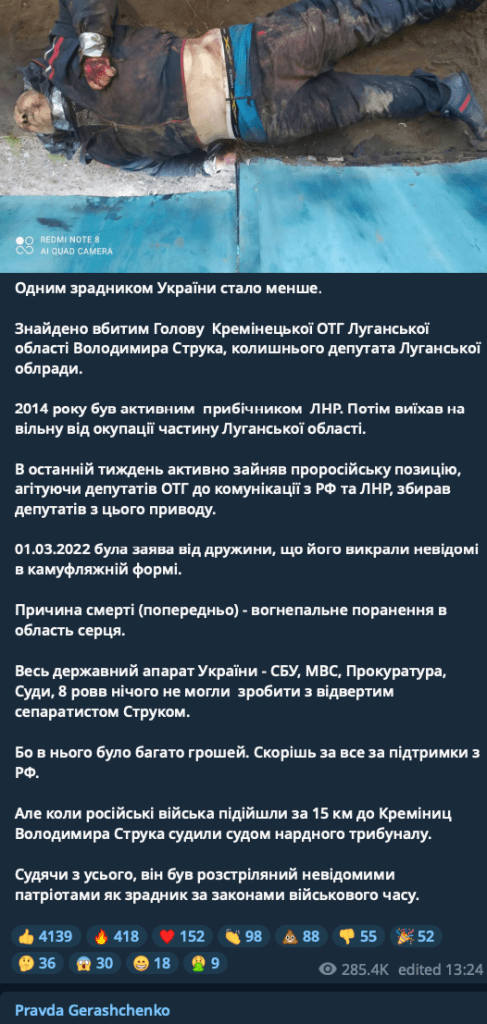BY RICHARD D. WOLFF

Photograph by Nathaniel St. Clair
To the motives for war in human history, capitalism added another: profit. That motive drove technological advancement and created a genuine world economy. It also built new capitalist empires such as the Spanish, Dutch, British, French, Belgian, Russian, German, Japanese, and American empires. Each of these countries built its empire by various means including wars against prior systems operating on their own territories, in their colonies, and in foreign “spheres of influence.” Wars likewise characterized interactions among empires. Global warfare (“world wars”) accompanied the globalization of capitalism and its profit motive. The war in Ukraine is the latest chapter in the history of capitalism, empire, and war.
Capitalism means enterprises run by small groups of people—employers—who preside over large groups—hired employees. Employers are driven to maximize profits: the excess of the value added by hired workers over the wages paid to them. Employers are likewise driven to sell outputs at the highest price the market will bear and buy inputs (including workers’ time) at the lowest possible market price. Competition among capitalist enterprises pressures all employers to plow profits as much as possible back into the business to help it grow and to gain market share as means to maximize profits. They each must do this in order to survive because competition’s winners tend to destroy and then absorb the losers. The social result of this competition among enterprises is that capitalism as a system is inherently driven to expand quickly.
That expansion, inside every capitalist nation, inevitably overflows its boundaries. Capitalist enterprises seek, find, and develop foreign sources of food, raw materials, workers, and markets. As competition becomes global, competing capitalist enterprises seek help from their nations’ governments to expand. Politicians quickly learn that companies in their nations that lose in global competition will blame those politicians for insufficient support. Meanwhile, companies that win in the global competition will reward such politicians for their help. The social result of this is that capitalism entails national competition alongside enterprise competition. Wars often punctuate capitalism’s national competition. The winners in those competitions thereby often tended to build empires, historically.
For example, in the 17th and 18th centuries, wars helped British capitalism to build a global empire. In the 19th century, more wars punctuated the completion and consolidation of that empire. Empire growth had itself stimulated all manner of challenges and competition, eventuating in more wars. For example, as capitalism took root and grew in Britain’s American colony, colonial enterprises eventually encountered obstacles (limited markets, taxes, and limited access to inputs). These obstacles eventually grew into a conflict between them and their colony’s leaders, on one side, and Britain’s capitalists and King George III, on the other. The war of independence resulted. Later, British leaders went to war against the United States in 1812 and also considered siding with the enslavers in the South against the capitalist North in the American Civil War.
The 19th century saw countless efforts by other nations to compete with, challenge, undermine, or reduce Britain’s empire. Competitive capitalist enterprises engendered competitive colonialism and many wars. The United States and Germany grew into the major national competitors for Britain. Wars punctuated the growth of capitalism across the 19th century, within the United States and Germany, as well as elsewhere across the globe. As capitalist enterprises combined, centralized, and grew—resulting from the competition among them—so too did many nations consolidate into fewer numbers of nations. Wars became larger too, culminating in the devastating first of the two world wars.
The British Empire fought the German Empire in World War I. That destroyed them both as contenders for global dominance. Having been far less damaged by World War I, U.S. capitalism grew fast in replacing the global capitalist positions that Britain and Germany had lost because of the war. World War I also established capitalism’s responsibility for the tens of millions who died, were injured, and were made refugees in what was then considered the worst war ever. Germany tried to regain its global dominance a few years later, allied with the newest capitalist empire, Japan, to undo the results of World War I. It failed, as the United States defeated Germany and Japan to demonstrate its economic and military (nuclear) superiority. A consolidated U.S. global empire prevailed from 1945 until recent years.
The United States then learned what the British had discovered earlier. Building and consolidating a capitalist empire provokes an endless succession of challengers. Among capitalist enterprises, competition’s losers’ employees move to work for the winners; the winners’ enterprises grow, and the loser’s decline. Winners’ growth often entails still greater profits and more competitive victories. That growth invites and promotes new competitors. Fended off for a while, eventually one or more new competitors discover how seriously to challenge the older dominant firm and displace it. Capitalist empires and their challengers exhibit parallel histories. As the competitive new enterprise destroys the old, the same happens with empires. That has been capitalism’s history, and that is what is now being seen in Ukraine.
Britain, after the end of the reign of Napoleon Bonaparte, won a century of global dominance. The United States after World War I did so too. Both empires provoked endless challenges. Nations large and small developed enterprises, industries, and political leaders who wanted to make changes or move in directions that differed from/challenged the U.S. global capitalist hegemony after World War I. For example, across Latin America, references to “manifest destiny” resulted in small wars to remove competing challenges in the region. Likewise, when Iran’s prime minister in the early 1950s, Mohammad Mosaddegh, or Patrice Lumumba, the first democratically elected prime minister of the Democratic Republic of the Congo, showed signs of breaking away from the U.S. empire’s control, both were removed. The one repression attempt by the U.S. that failed was in Cuba. The United States then isolated and economically hobbled Cuba via sanctions and embargoes. Warfare could be economic as well as military. Ukraine is another example, but with a peculiarity: U.S. support for Ukraine is an effort to repress another country that challenges U.S. hegemony, namely Russia. And repressing Russia too is a peculiar indirect way to get at the greatest threat to the U.S. capitalist empire, namely China.
The USSR’s survival after 1917, its World War II victories, and its development of nuclear weapons after 1945 created a potential challenger for the U.S. capitalist empire that had to be confronted. Former U.S. President Franklin D. Roosevelt and former Prime Minister of the United Kingdom Winston Churchill had accommodated the USSR’s control in Eastern Europe after 1945, but that represented a “loss” for U.S. global dominance. Thus, Eastern Europe quickly became the site of an ideological or “cold” war that pitted freedom and democracy against communism and totalitarianism in the USSR and its “satellite states.” It had to be a “cold” war because the consequences of a nuclear war would have been extreme. Before World War II, U.S. wars against other communist challengers of its empire had not demonized them as “evil communists.” During World War II, the United States even allied with the USSR to jointly defeat the immediate challengers (Germany and Japan). But after 1945, that was the preferred ideological terminology used for the USSR to justify protecting the U.S. empire. Then, when the USSR and its hold on Eastern Europe collapsed in 1989/1990, the old terminology faded in favor of a new terminology, used to begin a new war on a new challenger: Islamic terrorism.
The 30-plus years since 1989/1990 have changed both the U.S. empire and its challenges. Russia proved too weak to hold on to most of Eastern Europe. The United States reintegrated much of that region into Western capitalism via EU and NATO memberships, trade agreements, and Western investments. Slowly, over the last 20 years, Russia overcame some of its post-1989 weaknesses. The meteoric rise of the People’s Republic of China (PRC) brought new challenges for the U.S. empire, including a Russia-China alliance. Russia is now a capitalist economic system allied with the PRC (whose economy has a larger private capitalist sector than at any time since the Chinese Revolution of 1949). These two powerful capitalist economies are the largest globally by geography (Russia) and by population (China). They present a major problem for the U.S. global empire.
Russia evidently felt finally strong enough and allied with a much larger economic entity so it could hope to challenge and stop further “losses” in Eastern Europe. Thus, it invaded Crimea, Georgia, and now Ukraine.
In stark contrast, the U.S. empire’s ability to suppress challenges to its global dominance shrank. It lost wars in Vietnam, Afghanistan, and Iraq, as well as its intervention in Syria’s civil war. Its global economic footprint decreased in relation to that of the PRC. It proved unable to bring nations like Venezuela and Iran to heel despite trying hard for many years.
In Ukraine, on one side is an effort led by nationalists who would bring another nation further back into the U.S.-led global capitalist empire. On the other side is Russia and its allies determined to challenge the U.S. empire’s growth project in Ukraine and pursue their own competitive agenda for part or all of Ukraine. China stays with Russia because its leaders see the world and history in much the same way: They both share a common competitor in the United States.
Ukraine, per se, is not the issue. It is tragically a war-ravaged pawn in a much larger conflict. Nor is the issue about either Russian President Vladimir Putin or U.S. President Joe Biden as leaders. The same history and confrontation would prevail upon their successors. Meanwhile, former U.S. President Donald Trump’s effort to force change on the PRC by imposing the biggest sanctions action in history (i.e., a trade war and a tariff war) utterly failed. Trump was caught up in the same history as Biden, even if each focused on attacking the Russian-Chinese alliance differently.
Eventually some compromise will end the Ukraine war. Both sides will likely declare victory and blame the war on the other among propaganda blizzards. The Russian side will stress demilitarization, denazification, and protection of Russians in eastern Ukraine. The Ukraine side will stress freedom, independence, and national self-determination. Meanwhile, the tragedy goes beyond Ukraine’s suffering. The entire world is caught up in the decline of one capitalist empire and the rise of yet another. Conflicts between the capitalist empires can occur anywhere where differences between them flare up.
Perhaps the greatest tragedy lies in not recognizing the responsibility of the capitalist system with its markets of competing enterprises run/dominated by the minorities we call employers. That system lies at the root of these historic repetitions. The minority employer class controls or is the leadership of the nations that have absorbed and reproduced the competition that capitalism entails. The majority employee class pays most of the costs on both sides (in dead, wounded, destroyed properties, refugee lives, and taxes). A different economic system not driven by a profit motive offers a deeper solution than any on offer at present. Perhaps the war in Ukraine can awaken an awareness of its capitalist roots and teach people to explore alternative systemic solutions. If so, this war and the resulting devastation from it could lead to an important turning point that eventually results in some positive outcomes in the future.
https://www.counterpunch.org/2022/04/14 ... n-ukraine/
Whatever other 'capitalist empire' are you talking about, Richard? Trots never know when to shut up.
*******************************
Russian Foreign Minister Sergey Lavrov’s Interview with Rossiya Television Network, Moscow, April 11, 2022
Posted by INTERNATIONALIST 360° on APRIL 13, 2022
I would like to ask you about “strange” statements by European diplomats on the course of ’s military operation in Ukraine. EU diplomacy chief Josep Borrell said it must be won on the battlefield. This doesn’t really jibe with the EU’s status as a primarily political and economic organisation. German President Frank-Walter Steinmeier expressed regret over his earlier stance on the possibility of normal dialogue with . So now he doesn’t think it’s possible. How is one supposed to talk with these people? How is one supposed to come to terms with them?
Sergey Lavrov: This is a major shift in the policy of the EU and the entire West under the leadership of the US (there is no doubt about that) that occurred after the start of our special military operation. Their current policy is rooted in bitterness and derangement (excuse the non-diplomatic word choice), though it’s not all, but rather turning that country into a bridgehead from which Russia can finally be subjugated and subordinated to the global system built by the West, even though the Cold War ended and the Warsaw Treaty disappeared. The West was moving closer to our borders all the time despite its promises not to expand NATO, statements to the effect that we were no longer adversaries, and many other things.
Our special military operation is designed to put an end to NATO’s unlimited expansion and to keep the US and other NATO countries from achieving total domination in the world arena.
They are building this system based on “rules” which they just now started going on about, despite violating international law in the crudest manner in the process. They devise these rules on a case-by-case basis. It is fine to recognise independence in Kosovo without a referendum but not in even after a referendum that was monitored by hundreds of unbiased foreigners. A threat to security was detected in Kosovo. They bombed it but didn’t locate the threat and didn’t even apologise.
They are cultivating neo-Nazis and ultra-radicals on our borders. The Pentagon is setting up dozens of laboratories conducting experiments to develop biological weapons. The documents found there (in Ukraine) leave no doubt about this. But we are not allowed to respond to a threat on our borders, as opposed to across the ocean. That’s the message.
President Vladimir Putin explained in detail the reasons for the decision on the special military operation. These include eight years of sabotage of the agreements accompanied by the daily bombing of Donbass; the flooding of with Western weapons; and the sending of instructors that trained the most extremist units that were later sent to the Armed Forces of Ukraine. They formed the backbone of the groups that are now resisting our operation to demilitarise and denazify . Western propaganda immediately used all this to portray us as pure evil and themselves, consequently, as purely good. The current Ukrainian regime is described as a model of democracy, justice, freedom and European aspirations in all things, including the values that the US has supposedly always preached. The response that followed shows that they understand very well that isn’t really the point. The point is their own dominance, which far from all countries are willing to accept, with its history and traditions, and Russia is one of those countries that will never accept a subordinate status. We can be members of the international community only on equal terms, on conditions of indivisible security. We wanted to reach some accommodation but were ignored by our Western colleagues.
But what Mr Borrell said – even by the standards of the unprecedented, aggressive level things have reached – marks a serious change in the rules of the game. Until now the EU has never acted as a military organisation. Yes, now they are discussing their “strategic compass.” For the first time in history, now allocated an additional 100 billion euros to exercise its military muscles, represents a qualitative change. This “strategic compass” includes a tangible increase in military spending and the formation of a certain collective structure for defence against potential aggressors. But the upshot of all this independence is zero because the US is controlling everything that is being done. The EU has not been given any independent role, even internally. Its efforts are being skillfully controlled by the Baltic states, and , which will not allow any kind of separation between the EU and NATO. Quite the contrary, they will be pushing it back into NATO’s web.
Question: A NATO branch?
Sergey Lavrov: So it seems. Whenever the chief diplomat of a country or an organisation (in this case, head of EU diplomacy Josep Borrell) says that a particular conflict can be resolved exclusively by military means, that is how such a statement is construed. This means that either he has a personal grudge, or it was a slip of the tongue, or he got ahead of his orders. This statement is out of line. We will cover this in more detail in our official documents. I hope we will be able to analyse all this within the next couple of days.
You also mentioned Frank-Walter Steinmeier, whom I know well back from his days as Federal Minister of Foreign Affairs. He is now the President of Germany. In an interview that he gave several days ago, he was asked whether an international tribunal was needed to try representatives of the Russian leadership, starting with President Vladimir Putin and the Foreign Minister, as war criminals. He agreed, saying that everyone who is responsible for the military operation and the political decisions should be held accountable. I leave this to his conscience. I think that the facts will become known in Germany, and the perpetrators of war crimes will become known. This will be determined not on the basis of fakes (such as Bucha or Kramatorsk), but on the basis of the deadly evidence that we present, and that our military discover during the special military operation and on the basis of the testimony of the people who have lived in the divided Donbass under the yoke of these neo-Nazis for many years, cut off from their sons who stayed on the eastern side of the line of contact. As these people are being liberated now, it is impossible to fake the feelings that they have or to make up the hardships they went through living under the control of neo-Nazi and other “territorial” battalions.
Steinmeier said another interesting thing about Ukraine. He said that, as a diplomat, he had never dedicated as much time to any other country as he did to Ukraine. He recalled that when Germany chaired the EU in 2007, he was the one to initiate the talks on preparing an Association Agreement with the EU. In 2013, when the riots began on the Maidan, he brokered talks between Viktor Yanukovych and the opposition. That’s how it was, indeed. Importantly, a half-truth is worse than a lie. In fact, Mr Steinmeier left out some important episodes and turning points in the events that he mentioned. First, the Association Agreement between Ukraine and the EU provided for the transition to zero tariffs for the vast majority of goods. By the time this Agreement had already been in the works in 2013, we reminded our Ukrainian colleagues that we also have a free trade area with them as part of the CIS. We introduced significant protections against European goods when we joined the WTO. So, if they have zero tariffs with Europe, and we have long had zero tariffs for most goods with Ukraine, then goods from the EU will pour into our country freely contrary to the agreements that we reached when joining the WTO. We told them we need to sit down and decide on this issue so that we are not impacted by their relations with the EU. However, the EU, which (as Steinmeier says) started the talks on the Association Agreement on his initiative, told us that this was not our business and that they would reach an agreement with Ukraine as they see fit. After that, Yanukovych realised that this would be a problem and Russia would be forced to build a barrier on the border with Ukraine against Ukrainian-made goods. The President of Ukraine asked to postpone the signing for several months so that we could resolve these problems taking into account the interests of Ukraine, Russia and the EU.
It was after this that Europe, which Mr Steinmeier was so proud of when he said that Ukraine aspired to European values, provoked the Maidan. They rallied the people under the banner of fighting Yanukovych who allegedly wasn’t letting Ukraine join the EU.
Mr Steinmeier did not mention that he did not just broker the talks between Yanukovych and the opposition, but also took part in concluding them by signing a settlement agreement. On behalf of Germany and the EU, Steinmeier signed this agreement as a guarantor alongside the foreign ministers of Poland and France. The next morning, they spat on his signature. The opposition tore up the agreement and, from day one, advocated the abolition of the special status of the Russian language (contrary to the Constitution of Ukraine), called for Russians to “get out” of Crimea, sent “friendship trains” there with armed thugs who wanted to storm the Supreme Soviet. After that there was a referendum. Eastern Ukraine completely refused to recognise the coup. They did not attack anyone, but they were declared terrorists and an anti-terrorist operation was announced.
Mr Steinmeier forgot to say that Germany, France, Poland and the entire European Union showed total helplessness and lack of self-respect. Their signatures were trampled on. Tacitly, they even began to encourage this whole thing when they realised that the thugs who came to power would help the West in every possible way and manipulate it. They remained silent when these people burned dozens of innocent people in Odessa’s House of Trade Unions and when, on June 2, 2014, Ukrainian Air Force bombed central Lugansk. They just remained silent. Later, during the attempts to resolve the situation months and years later, we asked them how they allowed a coup to happen. They told us it was “not quite a coup.” Then what? “The costs of the democratic process.” How can you say that with a straight face?
Frank-Walter Steinmeier forgot to mention February 2015, when, alongside the Normandy format leaders, he co-authored the Minsk agreements. Soon after the signing, actually the next day, Petr Poroshenko and his team, speaking in the Verkhovna Rada, refused to act on them. They called the Minsk agreements a “political declaration” which allegedly was not binding. Then we unanimously approved the Package of Measures at the UN Security Council. It has become part of international law and thus binding. They ignored it and in every possible way encouraged the Ukrainian regime as it continued to sabotage its obligations.
We continued our efforts to find compromises, and were ready to make additional concessions and encourage the republics with which Kiev refused to talk to directly to do so as well. At some point during the talks we supported what was called the “Steinmeier formula” as a sign of our flexible approach. When we had to decide what should be done first – granting a special status or holding elections – he came up with a solution that suited everyone and became known as the “Steinmeier formula.” A couple of weeks after the “formula” had been approved and everyone welcomed it, it was consigned to oblivion as well. Petr Poroshenko and Vladimir Zelensky after him were vehemently opposed to following it.
Frank-Walter Steinmeier has to live down a diplomatic disgrace for the second time in several years if he considers himself the initiator (as he proudly stated in that interview) of many things related to the state of Ukrainian society.
Question: Is it possible to speak about a change in the positions of the sides at the Russia-Ukraine talks after the provocations in Bucha and Kramatorsk and considering the collective West, primarily the US, is doing all it can to prolong hostilities?
Sergey Lavrov: President of Russia Vladimir Putin emphasised more than once that we prefer talks. During the very first round of talks when Ukraine suggested contacts and we agreed to arrange them, President Vladimir Putin ordered a pause in the special military operation. When we realised that the Ukrainians were not going to reciprocate, we decided not to make any pauses for subsequent rounds of talks until the final agreement was reached and signed.
The provocations are outrageous. Our military personnel provided chronological arguments and videos made in Bucha (excuse me for going into details but they depicted the positions of corpses and how they looked). They presented all the evidence they could. I don’t understand how adults who consider themselves politicians and diplomats can try to say otherwise without any support.
It is revealing that they tried to keep Bucha going as a story for several weeks but quickly stopped talking about Kramatorsk. Evidence was presented on the same day, including ballistic trajectories, the absence of Tochka-U systems in our forces and the like. More provocations will follow.
Recently, the Defence Ministry and the National Defence Management Centre of Russia submitted intelligence data revealing the plans of the Ukrainian regime to stage new provocations with direct support of Western intelligence services, for instance, involving the use of toxic chemicals, mass executions and burials. There will be more provocations. We must respond to them with facts. Our main argument is what is taking place on the ground.
I don’t see reasons that could prevent us from continuing the talks even though Ukrainians keep making an about face and rejecting what they have just suggested.
We are patient and persistent.
Question: What are conditions like for our diplomats working now in unfriendly countries and the UN Headquarters? We are seeing a worrying surge in Russophobic attitudes. Families with children abroad are receiving threats. Did you have to harden security for the employees? How can the interests of our compatriots be protected against the backdrop of mounting Russophobia?
Sergey Lavrov: Diplomats live and work in difficult conditions. There are attacks, actually terrorist acts against our offices and their physical security but our diplomats are more or less protected by their status. We often do not advise people to go out alone.
We are most of all concerned over the situation of our compatriots, citizens, simply Russians living abroad. They are subjected to regular physical attacks. I know that Western capitals and Western embassies in Moscow are discussing this issue. EU ambassadors hold meetings from time to time for this purpose. Some of our good acquaintances said that EU ambassadors in Moscow are expressing serious concern over examples of Russophobia in Europe. They think this is wrong because it spoils the EU’s image. I wouldn’t say spoil but rather further reveals it for what it is now.
The speed with which the Russophobic wave was set in motion shows (as a US scholar put it) that “latent racism” is alive and well in Europe. At one time, Adolf Hitler mobilised his own society and other European countries against the Jews (and Slavs, for that matter). Now the command to attack is against Russians. The gloves have come off, the pretense and political correctness are gone. Nothing remains.
Ukrainian politicians say “a good Russian is a dead Russian.” All other Russians are bad. Ministers are saying that Europe must discriminate against all Russians without distinction. They want them ostracised whether or not they support Putin because there is no time to determine that. They are openly saying this.
These are serious things. We will use all legal channels at our disposal to protect our citizens. There is the Foundation for Supporting and Protecting the Rights of Compatriots Living Abroad. For the most part, it helps hire attorneys for people abroad. We are substantially increasing its financing.
This is a huge problem. We will discuss it.
mid.ru
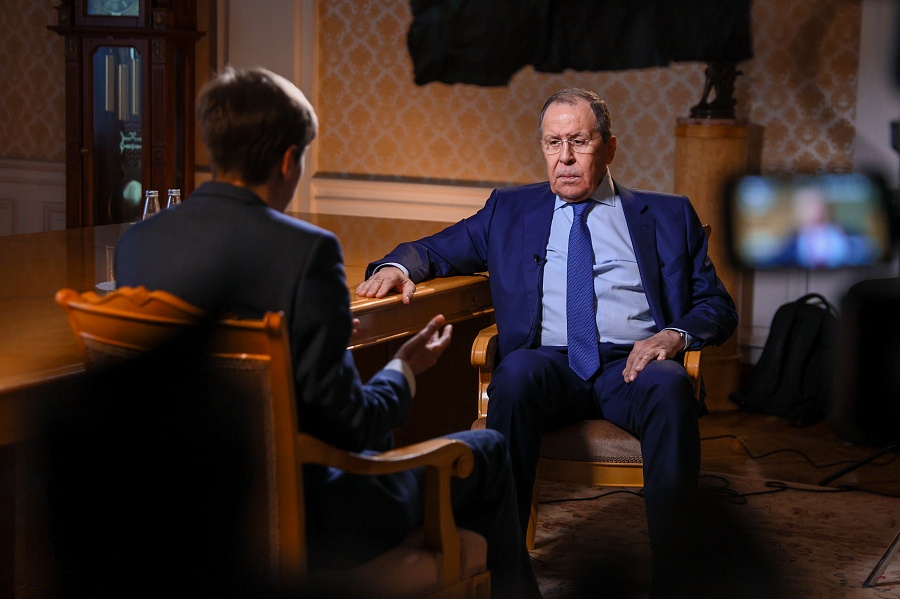
https://libya360.wordpress.com/2022/04/13/107743/
The Alliance of MI6, the CIA and the Bandéristes
Posted by INTERNATIONALIST 360° on APRIL 12, 2022
Thierry Meyssan
After having shown that the war in Ukraine was prepared by the Straussians and triggered on February 17 by Kiev’s attack on the Donbass, Thierry Meyssan returns to the secret history that links the Anglo-Saxons to the Banderites since the fall of the Third Reich. He sounds the alarm: we have not been able to see the resurgence of Nazi racialism in Ukraine and in the Baltic States for thirty years, nor do we see that many of the Ukrainian civilians we welcome are steeped in Banderites’ ideology. We are waiting for Nazi attacks to begin in Western Europe before we wake up.
WESTERN SUPPORT FOR NAZISM (1933-1940)
The massive support of the United States and its allies for the Ukrainian Banderites against Russia is comparable to the support of the same side in the early days of Hitler’s Germany against the USSR. Let us remember that absolutely all Western states without exception believed, at one time or another, that the Nazis were the solution to the economic crisis of 1929. Only they seemed to offer a credible alternative to capitalism. Of course, almost all of these people changed their minds when the Nazi danger turned against them.
As an example, let us recall that the French Foreign Minister, Georges Bonnet, enchanted by the Jewish policy of the Reich, proposed to his German counterpart, Joachim von Ribbentrop, to deport French, Polish and German Jews to a distant colony, Madagascar [1].
On December 6, 1938, the same Georges Bonnet signed the Franco-German Commitment to Peaceful Collaboration with Joachim Ribbentrop, the Reich Foreign Minister.
British Prime Minister Neuville Chamberlain organized the Munich Agreement of September 30, 1938, which liquidated Czechoslovakia for the benefit of the Reich [2], while the Governor of the Bank of England, Montagu Norman, stole 27 tons of Czechoslovakian gold to help strengthen the Nazi armies [3].
Or Prescot Bush, the father of President George H. Bush and the grandfather of President George W. Bush, invested in 1940 in the factories of the Auschwitz prison camp (which only became an extermination camp in 1942) [4].
After the fall of Nazism, these people were not brought to justice. On the contrary, efforts were made to close ranks and to forget these felonies. Let us be careful not to repeat the same mistakes!
THE ROLE OF THE UKRAINIANS DURING THE COLD WAR
During the Second World War, the theoretician of Nazism Alfred Rosenberg and Minister of the East (Ostminister) entrusted the Latvian Gerhard von Mende to organize the rallying of the peoples of the USSR to the Führer Adolf Hitler. In doing so, he devised a model for the manipulation of minorities that was taken up by the CIA after the fall of the Third Reich. With the help of the Grand Mufti of Jerusalem, Amin al-Husseini, Von Mende created schools for mullahs in Göttingen and Dresden, had a Grand Mufti appointed in the Crimea, and enlisted Eastern SS regiments. He was also the handler of the Ukrainian “nationalist” Stepan Bandera.
In Washington, Presidents Truman and then Eisenhower decided to focus on psychological warfare against the Soviets. The CIA created AmComLib (American Committee for the Liberation of the Peoples of the USSR), which operated Radio Liberty from Munich. It recycled Gerhard von Mende. It was he who proposed the establishment of a mosque in Munich, which was eventually entrusted to Said Ramadan (the son-in-law of the founder of the Brotherhood Hassan el-Banna) [5]. It was also he who settled Stepan Bandera’s problems and recycled him to MI6 and the CIA [6].
Stepan Bandera’s former deputy and Nazi-imposed Ukrainian Prime Minister, Yaroslav Stetsko, was on the instructions of the Third Reich one of the founders of the Anti-Bolshevik Bloc of Nations (ABN) during World War II. He continued the ABN during the Cold War, this time for the United States. As such, he became a pillar of the World Anti-Communist League (WACL) formed by the CIA [7].
The headquarters of the ABN was in Munich, from where Stepan Bandera and Yaroslav Stetsko conducted sabotage operations in the USSR. The chairman of the ABN was the Dane Ole Bjørn Kraft, former chairman of the North Atlantic Council (the civilian authority that commanded the Allied forces). Several operations were planned in collaboration with the CIA and MI6, i.e. under the supervision of Frank Wisner (Nicolas Sarkozy’s grandfather by marriage) and Kim Philby. But the latter betrayed the Crown and passed on information to the KGB, which failed [8].
One of Yaroslav Stetsko’s collaborators, Lev Dobriansky, became U.S. ambassador to the Bahamas, while his daughter Paula Dobriansky served as Under Secretary of State for Democracy (sic) in the George W. Bush administration. It was Mrs. Dobriansky who financed for ten years historical studies aimed at making people forget that the Holodomor, the great famine that hit Ukraine in 1932-33, also devastated Russia and Kazakhstan, and to make them believe that it was decided by Stalin to eliminate the Ukrainian people. This myth is manipulated by the Banderites to make people believe that the Russians have hated the Ukrainians for centuries. The European Parliament endorsed it in 2008 [9]. Afterwards, Paula Dobriansky held high positions at the Reuters agency and now works at the Atlantic Council. She was vice-president of the NED during the Maidan putsch.
President Ronald Reagan and Vice President George H. Bush welcomed the Banderites, including Yaroslav Stetsko, in 1983 at the White House [10].
Bandera was assassinated by the KGB in 1955. Stetsko died in 1986. Both men are buried in the German cemetery of Walffriedhof.
ANGLO-SAXON SUPPORT FOR THE JIHADISTS
In 1979, U.S. President Jimmy Carter authorized “Operation Hurricane”. The idea was to send Arab jihadists, members of the Muslim Brotherhood, to Afghanistan to fight against the communist government. It was then that this small terrorist organization became a real army [11]. One thing led to another, from the wars in Afghanistan to those in Yugoslavia and Chechnya, and finally to Daesh in Iraq and Syria [12].
For forty years, all Nato member states have been invited to provide “political asylum” to jihadists “persecuted” by Arab dictatorships. At least 17 allied states participated in “Operation Timber Sycamore”, supplying billions of dollars worth of weapons to the jihadists [13] until they threatened the West. Let’s be careful not to repeat the same mistakes!
WESTERN SUPPORT FOR UKRAINIAN BANDERITES, CROATIAN USTASA AND BALTIC NEO-NAZIS
During the Cold War, former specialists in Nazi repression were integrated by the United States into its anti-Soviet apparatus. One remembers, for example, the “Butcher of Lyon”, Klaus Barbie, who became chief of repression in Bolivia, or Alois Bruner, who became a special adviser to the Syrian president (before the Ba’ath) after having exterminated Jews in Austria, Greece and France. However, this seemed to have stopped with the dissolution of the USSR.
However, Banderite, Ustasha and Nazi militias emerged in the public space with the dissolution of the Warsaw Pact and the independence of the former Soviet states. They obtained the support of the Anglo-Saxons in the name of the collaboration of their parents during the Cold War. As examples we recall:
In Bulgaria, an annual event in memory of General Hristo Lukov has been held in Sofia for about 15 years [14].
In Estonia, it started in 2009 with the return of the ashes of SS Colonel Alfons Rebane (the “Estonian Rommel”), followed by the laying of a commemorative plaque [15], each time with the strong support of President Toomas Hendrik Ilves (himself a US official). Defense Minister Urmas Reinsalu visited the island of Saaremaa in 2012 to participate in a ceremony of the “Alliance of Estonian Freedom Fighters” (Nazi collaborators) and congratulate former SS men for “liberating the homeland” [16]
In Latvia, President Vaira Vīķe-Freiberga (1999-2007) claims that the “SS were heroes of the anti-Soviet struggle.” She had school history textbooks changed and authorized events commemorating these “heroes ». Latvia, where a quarter of the population is Russian, has banned the use of Russian in secondary schools. In addition, along with Estonia, it built a wall on its Russian border in 2018 [17]
In Bolivia, MI6 relied on the Croatian Ustasha community to overthrow President Evo Morales, in 2019 [18]
On November 18, 2020, the 3rd Committee of the UN General Assembly adopted a resolution on “Combating the glorification of Nazism, neo-Nazism and other practices that contribute to fuelling contemporary forms of racism, racial discrimination, xenophobia and related intolerance” (UN A/C.3/75/L.49). All UN members voted “for”, only the United States and Ukraine voted “against”. All members of Nato and the European Union abstained.
NATO’s stay-behind agent Dmitryo Yarosh.
THE SAME CAUSES PRODUCE THE SAME EFFECTS
On May 8, 2007, in Ternopol (western Ukraine), Nazi and Islamist groups created an “Anti-Imperialist Front” to fight together against Russia. Organizations from Lithuania, Poland, Ukraine and Russia participated, including Islamist separatists from Crimea, Adygea, Dagestan, Ingushetia, Kabardino-Balkaria, Karachaevo-Cherkessia, Ossetia and Chechnya. Dokka Umarov, the Emir of Chechnya, who is considered by the United Nations to be a member of al-Qaeda, was unable to attend due to international sanctions. The Front is chaired by Dmytro Yarosh, who went to fight in Chechnya. Together with Andriy Biletsky, the “White Führer”, he created the Right Sector, which led the EuroMaidan revolution, and later the Azov Battalion. Since November 2, 2021, he has been an advisor to the commander-in-chief of the Ukrainian army, General Valerii Zaluzhnyi.
On April 7, 2022, President Zelensky spoke before the Greek Parliament. He played a short video during his speech. A Ukrainian of Greek origin introduced himself as a member of the Azov regiment and praised his faction’s fight against the Russians.
Since the dissolution of the USSR, Ukraine has revived its old demons. School history textbooks have been changed. For thirty years, children have been taught in school that their country was only independent thanks to the Nazis and that they have no genes in common with the Russians, that inferior race. Every year tens of thousands of children and teenagers attend the “summer camps” of the Banderites, just as the Hitler Youth did. They chant their slogan: “Glory to Ukraine”. These young people, girls and boys, find today asylum in the European Union. Tomorrow, like their Muslim Brotherhood allies, some of them will commit attacks there.
Already, the Bandéristes are recruiting cadets in Canada, France, Germany, Poland, the United Kingdom and the United States and now officers in the military academies of these countries. For this purpose, they have created, in 2019, a secret order, Centuria, which spreads their ideology. This order is opposed to democratic procedures and universal suffrage. Its members recite the “Prayer of the Ukrainian Nationalists”, written by Josef Mashchak during the interwar period. They display the Danish Sun Cross and multiply references to the Thule Order, to which very high Nazi dignitaries belonged. Western armies did not take this threat seriously. This ideology, like that of the Muslim Brotherhood in the Middle East, is spreading like wildfire.
The foul beast is already here, among us.
How can we be so blind?
Translation
Roger Lagassé
This article is a follow-up to :
1. “Russia wants to force the US to respect the UN Charter,” January 4, 2022.
2. “Washington pursues RAND plan in Kazakhstan, then Transnistria,” January 11, 2022.
3. “Washington refuses to hear Russia and China,” January 18, 2022.
4. “Washington and London, deafened“, February 1, 2022.
5. “Washington and London try to preserve their domination over Europe“, February 8, 2022.
6. “Two interpretations of the Ukrainian affair”, 16 February 2022.
7. “Washington sounds the alarm, while its allies withdraw”, 22 February 2022.
8. “Russia declares war on the Straussians”, by Thierry Meyssan, Voltaire Network, 5 March 2022.
9. “A gang of drug addicts and neo-nazis”, 5 March 2022.
10 “Israel stunned by Ukrainian neo-Nazis”, 8 March 2022.
11. “Ukraine: the great manipulation“, March 22, 2022.
12. “The New World Order being prepared under the pretext of war in Ukraine“, 29 March 2022.
13. “The war propaganda changes its shape”, 5 April 2022.
NOTES:
[1] “Russia sets record straight: Poland and German Reich planned deportation of Jews as early as 1938”, Voltaire Network, 25 December 2019.
[2] “The Day the West Likes to Forget”, by Michael Jabara Carley, Strategic Culture Foundation (Russia) , Voltaire Network, 25 September 2015.
[3] “Anglo-American Money Owners Organized World War II”, by Valentin Katasonov, Strategic Culture Foundation (Russia) , Voltaire Network, 7 May 2015.
[4] « Les Bush et Auschwitz, une longue histoire », par Thierry Meyssan, Réseau Voltaire, 3 juin 2003. “The U.S. ruling class’ bargains with the Reich”, by Vladimir Simonov, Voltaire Network, 3 May 2005.
[5] A Mosque in Munich : Nazis, the CIA, and the Rise of the Muslim Brotherhood in the West, Ian Johnson, Houghton Mifflin Harcourt (2010).
[6] Stepan Bandera: The Life and Afterlife of a Ukrainian Nationalist: Facism, Genocide, and Cult, Grzegorz Rossoliński-Liebe, Ibidem (2015).
[7] “The World Anti-Communist League: the Internationale of Crime”, by Thierry Meyssan, Translation Anoosha Boralessa, Voltaire Network, 12 May 2004.
[8] MI6, Inside the Covert World of Her Majesty’s Secret Intelligence Service, Stephen Dorril, The Free Press (2000).
[9] Commemoration of the Holodomor, the artificial famine in Ukraine (1932-1933), European parliament, 23 October 2008.
[10] Old Nazis, the New Right and the Republican Party, Russ Bellant, South End Press, (1988).
[11] “The Muslim Brotherhood as an auxiliary force of MI6 and the CIA”, by Thierry Meyssan, Translation Pete Kimberley, Voltaire Network, 11 July 2019.
[12] Before Our Very Eyes, Fake Wars and Big Lies: From 9/11 to Donald Trump, Thierry Meyssan, Progressive Press (2019).
[13] “Billions of dollars’ worth of arms against Syria”, by Thierry Meyssan, Translation Pete Kimberley, Voltaire Network, 18 July 2017.
[14] “The Nazi Demonstration at Sofia”, Translation Anoosha Boralessa, Voltaire Network, 23 February 2018.
[15] “Estonia celebrates a Nazi Criminal”, Translation Anoosha Boralessa, Voltaire Network, 27 June 2018.
[16] “Estonian Government pays tribute to Nazism”, Voltaire Network, 9 July 2013.
[17] “The new iron curtain”, by Manlio Dinucci, Il Manifesto (Italy) , Voltaire Network, 20 September 2018. “Right to reply by the Latvian government”, Translation Pete Kimberley, Voltaire Network, 14 October 2018./
[18] “The overthrow of Evo Morales and the first lithium war”, by Thierry Meyssan, Translation Roger Lagassé, Voltaire Network, 16 March 2021.
https://libya360.wordpress.com/2022/04/ ... nderistes/
From the War Gonzo account on Telegram:
After the neo-Nazis are finished off in Mariupol, the main goal of the NM DPR group and the RF Armed Forces will be Avdiivka, a suburb of Donetsk, which was considered one of the most important and serious fortified areas of the Armed Forces of Ukraine in the Donbass.
The fighters of "Sparta" in their sector of the front and other units on the neighboring flanks are taking offensive actions in order to take Avdiivka into the "pincers". See @wargonzo
's special inclusion for exclusive details and details. *our project exists at the expense of subscribers, card for help 4279 3806 9842 9521
***
WarGonzo
Fighters of popular resistance to the Kiev regime in Kharkov, calling themselves "Kharkiv anti-fascists" recorded a video with an appeal to fellow citizens. It is obvious that those who are ready to fight against neo-Nazis with weapons in their hands - even in the territories that have not yet been liberated - are becoming more and more. Every day.
***
On a breakthrough from Mariupol. There are many rumors and discrepancies. Here's what the @wargonzo project knows , I'm breaking it down into numbers and numbers.
At the time of the breakthrough, there were about 1,500 neo-Nazis (Azov militants and AFU fighters) at the Ilyich plant.
Of these, about 800 were going to go for a breakthrough in the first column, the rest had to go out along the corridor cut by them.
The column consisted of about 120 pieces of equipment , including automobiles. At the head was a tank, 2 Gvozdika self-propelled guns and up to 10 infantry fighting vehicles, as well as MTLBs, armored cars and trucks.
More than 100 Ukrainian marines surrendered. Including the political officer of the 36th Marine Brigade of the Armed Forces of Ukraine.
More than half of those who were going to break through retreated back to the plant. Several dozen were destroyed by artillery strikes of the NM DPR. Up to 10 groups of 3-4 people were scattered and tried to seep through the environment. The search and elimination operation continues.
Hence the data on the second smaller breakthrough. We are talking about these wandering groups, which the special forces and fighters at posts enter into battle with if they are detected. Hence, a more thorough check of the car on the Volnovakha-Mariupol highway.
So no panic.
@wargonzo
***
Avdiivka cauldron
The Avdiivka area is directly adjacent to the Donetsk airport. From there, the nationalist forces of Ukraine regularly shell the capital of the DPR. Under their blows constantly fall civilian quarters.
In a special report by @wargonzo, you will see the fireworks of the Sparta unit on this sector of the front, and the commander with the call sign Vesyoly will tell you how the Spartans manage to counteract the Armed Forces here.
[youtube]http://t.me/wargonzo/6582[/youtube]
@wargonzo
https://t.me/s/wargonzo
